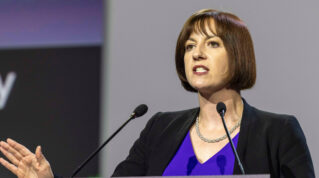A scheme using “local influencers” to share “positive messages” on attendance as part of a government communications push could be rolled out nationwide.
The Department for Education published its response to the education select committee’s report on persistent absence on Thursday.
While ministers outlined several plans to combat stubbornly-high absence, committee chair Robin Walker said “outstanding questions remain about whether the education and health systems are sufficiently resources to meet the rising tide of demand for SEND and mental health services”.
1. Mandatory attendance data ‘no sooner’ than September
DfE has been piloting a daily attendance data collection, which scrapes schools’ registers to give real-time intel. Four in five schools already take part.
MPs urged DfE to make use of the dashboard mandatory “as soon as possible”. However, this should be “subject to a successful evaluation of the pilot and addressing any remaining concerns about data management”.
In their response, DfE said it intends “to introduce regulations to mandate participation no sooner than September 2024”.
But this is subject to work with the DfE’s Star data chamber scrutiny board, the Information Commissioner’s Office and the schools sector, “as well as the usual parliamentary procedures”.
2. Mental health attendance code snubbed
MPs said introducing an authorised mental health absence code for schools to report “could eliminate the need for medical evidence in cases of known and established mental health difficulties and reduce the need for intervention via prosecution”.
Former schools minister Nick Gibb had already poured cold water on the idea during a hearing. DfE’s statement added “there are concerns that creating an additional code is unhelpful in practice and could place a burden on schools”.
“This is because, at the point of taking the register, it would be difficult for the teacher to determine whether an absence due to illness was related to a mental health reason or a physical health reason, or a combination of the two.”
MPs recommended a “cross-government assessment of the scale” of pupils’ mental health difficulties. But DfE said they do not believe it’s necessary as the government “already funds work to monitor” this.
3. Influencers called on for attendance campaign
MPs called for a “targeted public information campaign” on when or when not to send unwell children to school.
DfE confirmed that, with a creative agency, it has launched a regional “paid-for comms campaign in two locations” focusing on “disseminating positive messages on attendance and offers clear guidance on mild illness/anxiety”.
“The channels for communication spread across radio, static media, social media and local influencers. The department will work with the local authorities and schools in the regions in order to maximise visibility of the materials while the campaign is running.”
If the regional campaign is successful, DfE will “seek to roll this out” nationally in January.
Schools Week revealed how the Cabinet Office paid £13,000 for two influencers to promote its back-to-school campaign during the pandemic.
4. Ministers mull collecting breakfast or holiday club data
MPs said councils should be required to report on school attendance levels for pupils who have attended a breakfast or holiday club.
DfE said it is working with several councils to use pseudonymised pupil level data to track holiday activities and food (HAF) programme attendance.
It will “further investigate what more local authorities can do to collect and report” on the effect of HAF on school attendance. But there could be data sharing issues, they said.
The DfE said it will also investigate with the delivery partner of the national school breakfast programme how it can collect attendance data directly from schools taking part.
Attendance Action Alliance minutes, published this week, revealed DfE is also looking at multi-academy trust level data to “further understand at what level attendance can be improved”.
5. New SEND and LA service sections in guidance
The committee called for statutory attendance guidance from September 2024.
In response DfE said it agrees its “working together to improve school attendance” should become statutory in recognition “of the attendance challenge and to ensure that local authorities and schools consistently meet the expectations”.
The guidance will be updated ahead of this, they added, and it will include “new sections on mental health and targeting support meetings, and updated sections on SEND and LA services that can be traded”. However, no timescale was given.
















Your thoughts